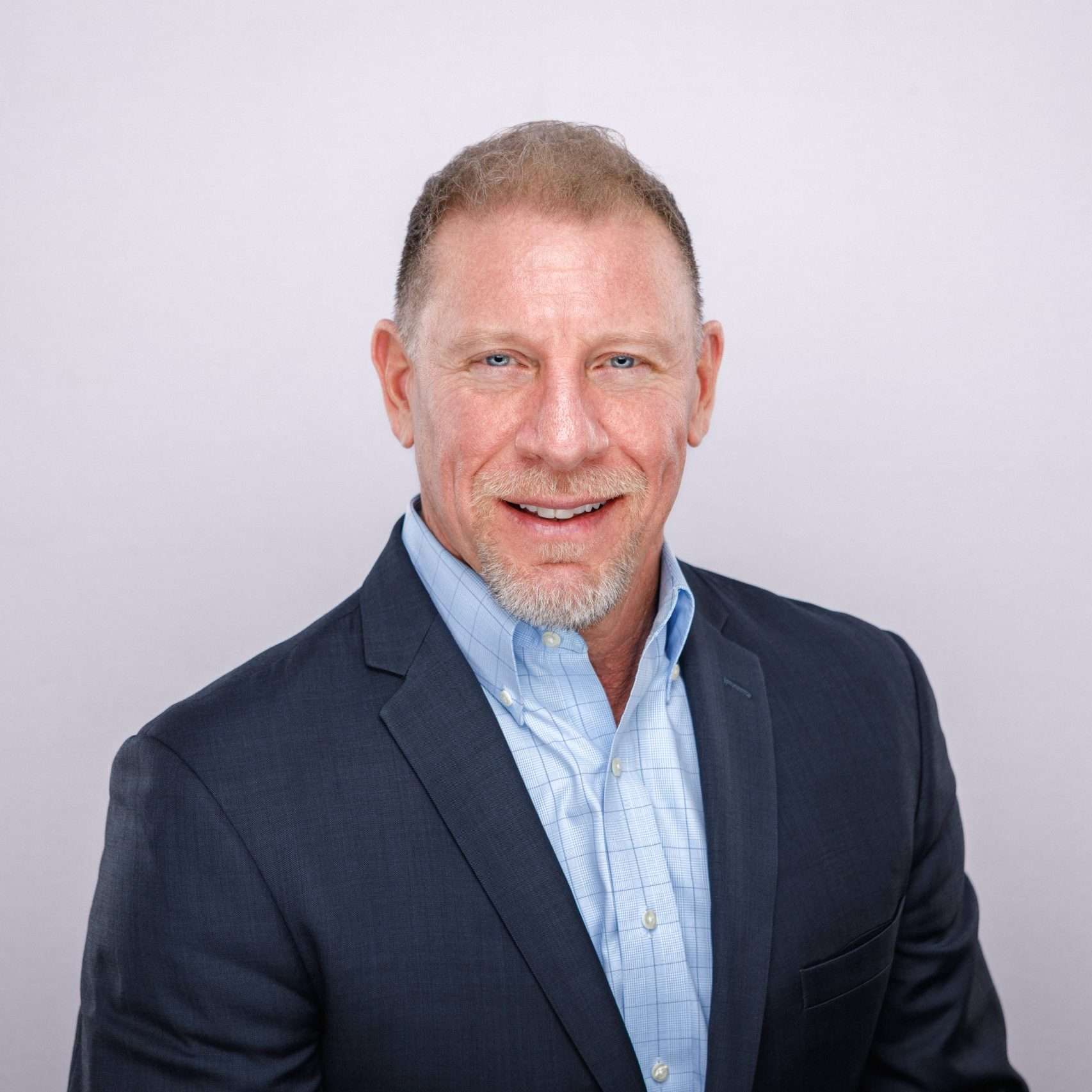Long Term Care Planning with Richard Backora
While it’s no fun to think about, long term care planning is essential. Richard Backora talks about how to make a plan for paying for it!
Listen to us On
About the Episode
We focused on long-term care planning, how it’s strange to think of older versions of ourselves but essential from a planning perspective, the emotions that keep us from planning, the logic that helps us finally do it, and how to talk with loved ones about it, with Richard Backora, Head of RIA Client Services at CBS Brokerage.
Listen to hear a difference-making tip on how to be direct in this important conversation!
You can learn more about Landon at CBSBrokerage.net, and LinkedIn.
Did you get anything out of this episode? Do us a solid and leave a review:
https://ratethispodcast.com/alignedmoneyshow
Learn more and engage at MoneyAlignmentAcademy.com, Twitter, LinkedIn, Instagram, YouTube and Facebook.
Buy George G a coffee (he loves coffee)
https://www.buymeacoffee.com/lifeblood
Have George G speak
https://moneyalignmentacademy.com/speaking/
Financial literacy and wellness for individuals, families, and companies
https://moneyalignmentacademy.com/
Find George G’s books here
The Aligned Money Show is the podcast for Money Alignment Academy, copyright 2024.

George Grombacher
Host

Richard Backora
Guest
Episode Transcript
george grombacher 0:02
Richard, to get us started. Give me two truths and a lie, please.
Richard Backora 0:07
All right, so try it out to play professional baseball at age 34. I’m a direct descendant of the Surgeon General to George Washington in the Revolutionary War. And I prefer mountains over the sea. All right,
george grombacher 0:31
these are excellent. Try it out for professional baseball 34 descendants of the Surgeon General under George Washington and you are a mountain guy, not an ocean guy. I gotta guess that you’d like to beach? Richard?
Speaker 1 0:49
Yes, Lucky. Yes. Yes. I am a beach person. Although I love my mountains. I find myself on a beach. That’s that’s where I that’s where I find my peace. Let’s put it that way. Yeah,
george grombacher 1:00
I can’t just take total credit for this. Richard and I were talking beforehand, we talked about how much he liked the beach. So I sort of had inside information on that when I could help myself I was gonna get something else. But then I just, you know, I’m like, here. Here we are. So tell me about baseball and the surgeon general.
Speaker 1 1:17
So baseball, I had a dear friend of mine at the time he was he was pitching coach for the Marlins. Living in South Florida. The Marlins in the St. Louis Cardinals have a training facility and I go in and kind of hang with him and throw some batting practice and things like that. I said, you know, he said, I’m in pretty good shape. Let me see what I can do. And he put me out on the back fields with, you know, players that I’ve never seen or known. And neither is anybody else for that matter. And, you know, they you go through scrimmage games and things like that. And I remember, I said three games, I sat on the bench and one played a little defense. I’m an outfielder and the other. And then I remember getting up to bat and there was this kid he couldn’t, I don’t even know if he shaved yet. And he was about six, five standing on top of a mountain that he pitched the ball. I watched his wind up and I heard the clap of the mitt behind me. Never saw anything. And at that point, that’s when I went okay, I just laid it back down into play and just kind of walked back and said, This is not for me. Yeah, it’s, it’s not for the you can be 34. But you needed to have started 15 years before that. But yeah, so it was it was fun, though. I you know, I got to know the organization pretty well. And it was, it was an interesting experience that way.
george grombacher 2:34
Totally cool experience for sure. Just a deep appreciation for what it looks like up close that most of us will never get to experience. Oh,
Speaker 1 2:43
the speed of it was credible. Oh, that was the pitch. Oops, okay. Walk away. I
george grombacher 2:49
forgot to do something. Got it. And then did you? How did you know about about the Surgeon General just personal research or family stuff?
Speaker 1 3:00
Family stuff. So my family, my grandmother, my mother’s side, German, Irish. And she was, you know, she kind of tracked military history. She was a wave in World War Two herself. She’s an interpreter. And we used to always, you know, we were always surrounded. She was the deputy commander of the American foreign legions. So I got to be involved in a lot of those things. And growing up out in DC area, you know, being in Arlington being around it. And she’s always told me the story. So she actually mapped it. This was long before we had technology that doesn’t today. And yeah, found out his name is Boto auto, there’s a society behind it. So I just thought that was pretty interesting. And I don’t think anybody can make that up as being a lie. It’s kind of way too random for that. So. So yeah, you know, it’s, it was interesting to kind of grow up in that environment, and learn about history and where we’ve been no
george grombacher 4:04
doubt of it. But what is top of mind for you right now, Richard?
Speaker 1 4:11
Well, you know, it’s very interesting. You know, when, when I got the information to join you here on the set it this is a topic that’s, I think, a conversation that needs to happen more often. To be honest with you. I don’t think it’s how it’s happening enough. And I don’t think we’re really doing it justice by really digging in a little bit more, you know, having more direct conversation, so I’m hoping you know, you and I can dig in a little bit more and really express and explain to people that this is a conversation about something that is going to happen, and we really need to get, you know, our arms around it, because unfortunately, you know, we know you know, long term care tends to break families apart. You know, there’s a lot of risk possibility at the end of the day here. And sibling rivalry is rapid, it takes place. So I that’s really what’s on top of my mind is, you know, what, what can I do to help people to understand a little bit better. And to make a difference in their lives, you know, this isn’t? Well, it’s not rocket science, it is complicated. But like anything else, if you don’t have a plan for it, it’s chaos. When the event takes place.
george grombacher 5:31
God willing, it’s weird to think of ourselves as older versions of us were to think that one day I’ll be, you know, hopefully a gray haired person and whatever, however, that looks. But there are sets of problems or conversations that have to have and caring for aging versions of ourselves one day, but right now caring for our aging parents, that’s something that I don’t think that artificial intelligence is going to take care of.
Speaker 1 6:02
I agree, I agree, I don’t think machine learning is going to help me get out of a bed and move to a chair to help me eat. It’s very human, it’s very real. You know, I think having a conversation. First of all, let’s just start out make it make it really simple communication is key, you know, not talking about it is not the answer, no matter how much you want to resist it happening. Understanding that, you know, all money decisions are based on two things, emotion and logic, you know, emotion is what drives us to make that decision. How’s it going to make me feel? How am I going to benefit from this decision, my family generations of my family, and logic is that mathematical proof, if you will, or other form of confirmation, that confirms that an emotional decision should be executed. And while that may sound simple, we really need to think about where or how that conversation is coming about, like, if you look at the ages, of the folks that should be having the conversation, we call those wealth conservationists, right, your age 55 to 70. That is perhaps the most emotionally trying time for making financial decisions that anybody would ever go through. And I think just to understand what that truly means, you know, retirement for the younger ones on the younger end of the scale, retirements right there on the horizon, right, so we tend to ease off the throttle or being aggressive. On the portfolio, we’re writing the last of really big checks to hopefully soon be an empty nester. You know, you’re in your peak income earning year. So you’re thinking about, you know, really capitalizing on your retirement or spousal retirement support. But then what happens, you just dropped mom off at a facility, or you had to make arrangements to get her some help. And you get back in the car, and you’re looking at each other. And the first thing out of your mouth is Honey, if this happens to us, how are we situated for this? And I think just having a clear understanding, you know, that’s where this comes from. And it’s already stressful enough. You know, I think another way that I like to help people approach it is to truly define what long term care really is, you know, when you close your eyes and you think long term care, you know, George, you and I, and just like everybody else, you’re thinking nursing home, and I’m on a gurney and I got nurses coming in, and realistically, most people who need care, they don’t want to be in a nursing home. And most of them are not in a nursing home. That’s kind of an end of life thing. It’s beyond the scope of what a family member outside caregivers are able to perform. And, you know, statistically, I’m not a big statistics guy, but I do share a few. We all have access, I’m a little older. So I have the AARP stuff coming in the mail, myself and you read things, seven out of 10, retirees will need some form of help, or two or three people over the age of 65 will need some form of health. But what does it say about the remaining three of 10? Or the other 1/3? They’re dead? I mean, I’m sorry to be so pods, but you know, let me let me put it a different way. Do you want to live a long, healthy life? I do. Of course, do you feel that just through the natural aging process that you might need help? Just kind of getting out of a chair, you know, or transferring from a chair to the bed or to a shower? without anybody around? That’s help that’s long term care. You’re deemed unsafe in your environment at that point. You know, that’s an extended health care issue in retirement. So, you know, just getting into the nitty gritty of people tell it well, it’s not going to happen to me. I want to die quietly in my sleep. So does everybody else. But tell me that just because you need help getting out of a chair that, you know, you’re, you’re gonna want to miss the time with your grandkids, you know, you’re gonna miss those moments sitting around Thanksgiving dinner. So I think that helps, you know, when you’re trying to engage parents and, you know, tying it to trying to engaging with your siblings. You know, I think it’s just again, communication is key. Understanding what it is understanding that this is going to happen, you know, this is this short as the sun is gonna rise, unless you are no longer with us, that you will need some form of help. But that’s really where I’d like I like to start the conversation, I think at that point, it kind of takes everybody’s temperature down a little bit. So let’s dig into it. What’s next? What should we talk about next? That’s where I like to start.
george grombacher 10:52
I think that that makes a lot of sense. And you talked about the emotion and then the logic. And when it’s a conversation like this, that I certainly, like we’ve been talking about, I don’t think I’m going to die, I certainly don’t think I’m going to become disabled, and I’m never gonna get old and need care, because that’s for old people. But the reality is that seven out of 10, people need care three of those that don’t probably deceased, sadly. So I am with you for all of that. So getting somebody’s attention, and then backing it up with the logic. Do you want a little little on life? Yeah. And what are the odds that you’ll need some kind of care decent? And then from there, we’re in the conversation.
Speaker 1 11:37
Right? You know, I think when you break it down, first of all, you got to get the you got to take the emotion out, you’ve got to separate once you’ve had that emotional connection and understand what we just talked about, what’s next. Okay, what’s the plan? How are we going to fund it? Or the two aspects of the rest of that conversation? You know, what is that plan? If mom goes down, or dad goes down, what’s our plan for that? You know, and it’s an unknown to a certain point, because we don’t know what that life changing event is going to be. But in any aspect, we need to know what that is. And this is a family conversation. So you know, parents are one thing, but siblings or another because ultimately, we’re all going to be responsible, we all want to take care of mom and dad or ourselves or spouses, so on and so forth. But having a plan, you know, the plan starts with G geography. You know, in this day and age, mom and dad live in somewhere where it’s warm, you know, there’s three or four kids are spread out all over the country. You know, so planning for care, is when that triggering event takes place, you know, either it’s, you know, activities of daily living, or the cognitive impairment that renders us unsafe, what are we going to do? Who’s going to do what part of that? And then funding? You know, how is it going to be funded? You know, oftentimes we hear, you know, folks that and advisors are, like, you know, are our clients can self insure? You know, I think there’s some terminology issue there, you know, no, it’s not actually self insuring it’s self funding. You know, it’s an immediate lost opportunity cost to take money out of circulation in your portfolio to pay for health care. And you never know how much it’s going to be. You know, what’s what’s an interesting fact is, you know, those that feel it really to round it out this way, is probably the easiest way to describe it. When I first have this conversation, I do a lot of seminars and things like that. So I’m sitting in front of crowds. And my first question typically is, so by show of hands, how many of you have are or anticipate being a caregiver, and almost 90% of the room just immediately raises their hand, they feel they fit into one of those three categories? And let me ask you a question when you were in the thick of it, so to speak, and you were providing that care? What do you think the most important thing in your mind was? If you had two choices? Did you need help? Or did you need money? And help overwhelmingly is number one, I just want to help but help cost money? It just depends on whether you’re at home or you’re in a facility and at what level of that facility. But I think if you stuck around what is the plan, and how are we going to fund it and you just you make it a non emotional conversation. If this happens to dad, then depending on what that care level is, this is what we’re going to do. And you know, it’s also important to understand that the person who needs to care while their life is impacted. inevitably, it’s everyone else around them, whose lives are going to change. We’ve all heard stories of, you know, folks that are maybe my age in their mid, the late 50s. And they’ve had to cut their career short, because there’s no one else around to take care of a parent, you know, or they’re moving them in. So, you know, you immediately have to take a look at your surroundings, is this going to be a safe place for an aging parent that can’t get around very well? Do I have to widen the doors for wheelchair access? Do I have stairs in the house? I mean, there’s so many different things. But I think a lot of times, it’s just, first of all, it’s incumbent upon the family that to come together. But to really express what’s involved in that, I think is probably the key to get them to truly understand that that moment of truth. What is it that your duties will be? And I think that kind of takes us to like the next level of the conversation.
george grombacher 15:59
All this makes a lot of sense to me, having a plan, figuring out how you’re going to fund it. I mean, all we can do here because we don’t know it could be a fall where we’re we have a broken hip or bone. And it might be short term, but that’s still going to require care or might be a chronic condition like dementia or Alzheimer’s that we can be preparing for. But without a plan, then we’re just, we’re all going to be running around, like a fire drill with our hair on fire, and see if I can come up with another fire example of some kind, but you understand what I’m saying. So just positions that person who will receive the care and then the family or success as well, because without that, it will be chaos. And there will be infighting, and it will just there’ll be a financial strain and emotional strain all of these things. Absolutely.
Speaker 1 16:48
Absolutely. You know, you brought something up. It’s interesting, all Long Term Care events, begin in the emergency room. Think about it, whether it’s physical or mental. At some point, there was an accident. And at that point, now the clock starts to tick. You know, I think making sure that that families are aware of just exactly what’s involved between the being the difference between a caregiver or care coordinator to different to a type that totally different things. So let’s just kind of clarify from a planning perspective. And I wrote a couple things down and just wanted to share. So timing, the event takes place, right? In the emergency room, doctor comes in mom, dad, or just, yeah, they’re gonna need some help. Let’s just whatever that situation, that scenario is, they’re going to need help. Okay, so let’s just kind of walk through what happens. So the doctor is going to order a plan of care. Okay, this is what we see over the certain next period of time. And hopefully, we’ll get better. It could be at home, it doesn’t really matter at this point, whether it’s a at home and adult daycare, and assisted living facility and whatever capacity there, they need help period. So let’s just start making make it easy there. So after the doctor orders a plan of care enough, somebody’s got the contact of facilities, right to make sure that that care will be rendered. You know, if need be if it’s outside of the home, then who’s going to provide the transportation couple, three, four or five times a week? If there are no facilities, if it’s not a facility related events, but you need expertise that home, okay, well, somebody’s got to arrange that and they’ve got that all these people, it doesn’t match the doctor’s care, and what kind of timeframe and who’s taking off work? Are we still working where the kids we have grandkids, transportation to and from doctor’s offices just for follow up again, if you’ve got family members that are spread out all over the place, like we typically are these days, that becomes a nightmare. Logistically. You know, what if there are multiple facilities needed? You know, like you said, what if you fell and broke your hips, you’ve got PT, you’ve got ot? Okay, sometimes you’re done in the same spot, but what if they’re not? Okay. You know, if it’s if if homecare needs to be done, and it needs to be coordinated with facility, care, who doesn’t the coordination of that? And then, of course, oh, well, how is all this going to be funded? Like who’s going to be responsible for paying all those bills? You know, they certainly want to get paid. Otherwise, you’re not getting the care that you expect. And if you take all just those things, and that’s just the instant you’re in the emergency room, think about that. That’s the minute the doctor says. Unless you’re a nurse or you’re in the industry, spouse, child that lives next door. This is how this is going to look. Wow. So now what do I do? You know, how do i Where do you even go from there? Like how do you leave the hospital at that point, if you don’t have this already down? And that’s what I meant by communication is key. You know, again, I tend to be a little direct about it, but you know, These are the things you should consider. And at that point, that’s a full time job. So what is the sibling life look like? What is the, you know, the spouse? You know, and I think from an advisory standpoint, you know, my question has always been, and I have a little series myself, I just put some, you know, some videos out there. How do you answer the call, you know, if you’re an advisor, and Mary calls, and Bob had a stroke, and it’s far greater than what I could care for at home, he’s going to be in a facility, we don’t know for how long and he’s going to come home. And I can’t do this. And all I know, is I need about five or $6,000 a month, and I don’t want to change my lifestyle. I don’t want to change any legacy goals that we had set up. Everything freezes. At that point, how do you answer that call? If you’ve never engaged in that conversation? Yes, this is uncomfortable. Yes, you have to ask the uncomfortable questions and get into that dialogue. But you got to figure as an advisor, at worst, you’re going to be the second phone call the client makes when that event takes place, you might be the first depending on the relationship. But if you’ve never engaged in that conversation, and you don’t know, you know, not asking all advisors to be experts in all things, but at least have the dialogue so that you can help hold the hand of your client through the process and go remember, we had a plan, we talked to your son and remember, marry your daughter was going to do just to provide that because you will be intimately involved in that. So I think it’s equally important to get advisors and their clients on the same page. You know, part of that challenge is because of the speed at which information is presented to us. You know, I mean, even if it’s just through AARP, and I’m not endorsing one particular organization over another, I know more about long term care by reading it outside of an advisor, and most of your clients do as well. So yeah, communication is key understanding, defining what it is, what’s going to happen at that moment of truth. Making sure that everybody understands the difference between what’s the plan and how are we going to fund it? I think from there, you know, it’s it’s not that really complicated head butting conversation, because those are raw facts. Oh, and this is going to happen. I think, I think that’s the biggest issue, the hurdle that people try to overcome. While it’s not going to be me and I’ve heard everything from Oh, well, Mama’s got to 12 gauge and so take me out back the woodshed. Okay, let’s have a real adult conversation about this. And, you know, we’re men, hey, women are caregivers for a reason. Why does it happen to men first, because we’re done. You know, we’re you tell a man that, you know, in his brain has been a provider for so long that he’s no longer going to be able to do that. Yeah, that’s a challenge. That’s an emotionally challenging time. You know, and I’m not making whether it’s a male or female, but any provider at that point, when you tell them there will be a point in time where you won’t be? That’s very difficult for them. You know, and I think, again, say it again, communication is key, have the conversation early. So you work out the details, you work out the animosity piece of that, you know, we live in Seattle, mom and dad are in Florida. Great. Let’s figure out what role you can play in this. And we’ll go from there. Yeah,
george grombacher 23:28
that makes sense. Well, Richard, you’ve already given us a lot, but already for that difference making tip, what do you have for us?
Speaker 1 23:36
I think the biggest difference making tip is, be direct about the conversation, period, just be direct. You know, get work, wade through all the minutia, and just get the proverbial crap out of the way, sit down face to face and go, if this happens tomorrow, you wake up, you don’t know who you are. Okay, and you’re drooling on your side. And we could blow this up and make it you know, pretty, pretty graphic from a visual standpoint. But when that takes place, what is the plan? And how are you going to fund it? So be direct about getting this done? You know, amend your estate planning documents, you know, put a funding mechanism in place, what asset would you liquidate first? If this needed to take and that goes for advisors as well have this conversation be the center point of that for them? Because they can’t walk through this by themselves? You know, no one wants to. That’s the That’s That’s the worst part. Nobody wants to have this conversation. So just be direct. Get it done. Get it over with. Oh, yes.
george grombacher 24:47
I think that is great stuff that definitely gets come up. You got to be direct. Richard, thank you so much for coming out. Where can people learn more about you? How can how can people engage with you consumers? advisors all of it.
Speaker 1 25:02
Still, the best way, first of all I would say is just do your homework, do your homework and do your research on the topic, particularly in long term care. So as the the SVP and head of Ra client services for CBS brokers, we, here’s a shameless plug, but one that I think is necessary, because of the level of education that we do provide, we focus in the RA space, you know, these are the types of conversations that we have with our advisors that we train, and educate advisors and having, you know, we also will be directly involved with their clients, if they’re uncomfortable, or they’re just learning, you know, this level of conversation. So CBS brokerage is the name of our company. And, you know, again, in the RA space, they’re challenged, to a very, at a very tough degree or tough level at this point, because the clients are asking for additional ancillary services through that relationship, you know, and they need a partner, someone who actually understands they’re very good at managing money, you know, just like we’re very good at this side of the game, it to get more information is to really engage with your advisors, and have their advisors and Ras engaged with us. You know, at the end of the day, we’re here to help the client experience and that is to help those clients walk down these difficult paths together. And I think, you know, that’s the best way, you know, to find out more information and to get in touch with us, and how can we help your company your RA, and YouTube, you know, we do a lot of videos that are out there. So you know, consumers and advisors alike can find us you know, we’ve got a bench have incredibly talented, long tenured folks in the industry, from advanced planning to simple things like long term care, we focus on the risk management side. So your you know, your family protection, your life, your disability, your long term care, your income planning. And then of course, you know, the event space, we’ve got one of the top folks who is JD LLM in taxation and use a lot of things that are coming down as you know, from a tax standpoint, lot of sunsets happening, a lot of changes that are about to take place. And we like to be a true partner. You know, we sit on the same side as the client, we understand what you’re going through.
george grombacher 27:33
Excellent. What’s the website?
Speaker 1 27:37
CBS brokerage.net Perfect.
george grombacher 27:43
If you enjoyed this as much as I did share, Richard your appreciation, share today’s show with a friend who also appreciates good ideas, go to CBS brokerage.net. Check out the resources, the Richard’s been talking about, find them on YouTube. I’ll link all of that in the notes of the show. And be direct. Have the conversation get the resources that you need. Thanks again, Richard.
Speaker 1 28:05
You bet. Thank you, George. Thanks for having me. He’s really that. Finally
george grombacher 28:10
a friendly reminder. Never buddy anybody more interested in your financial success than you are? So act accordingly.
More Episodes
Beyond the Bank Balance: Cultivating a Soulful Relationship with Money
You don’t need to be a Wall Street shark or a personal finance guru to develop a healthy relationship with money. In fact, most of us start with little more than a jumble of beliefs and habits passed down from our families. But if you’ve ever found yourself stressed...
How Using AI Can Help You Gain Clarity Into Your Financial Future
In today's fast-paced, data-driven world, achieving financial clarity can feel like an overwhelming task. With numerous financial decisions to make—from budgeting and investing to retirement planning and debt management—it's easy to feel lost in the complexity of it...
How AI Can Help Improve Your Personal Finances
1. Smarter Budgeting and Expense Tracking AI-powered tools like Mint, You Need a Budget (YNAB), and PocketGuard can automatically categorize your expenses, track your spending in real time, and even alert you when you’re about to exceed your budget. These tools...
Trust and Confidentiality When Using AI as Your Financial Coach: Safeguarding Your Sensitive Data
In the digital age, artificial intelligence (AI) has revolutionized many aspects of our lives, including personal finance. AI-powered financial tools have become a go-to resource for budgeting, investing, debt management, and even retirement planning. But as more...
How AI Can Be Your Personal Financial Coach: Unlocking the Future of Financial Success
In today’s fast-paced world, managing your finances can feel overwhelming. With so many options for saving, investing, and budgeting, it can be hard to know where to start or how to stay on track. Fortunately, advances in technology—specifically Artificial...
How Technology and AI Are Benefiting Investors and Consumers in Securing Their Personal Financial Futures
In recent years, the rise of technology and Artificial Intelligence (AI) has profoundly transformed the financial landscape. These advancements have empowered investors and consumers to make more informed, efficient, and personalized decisions about their financial...
10 Things New Parents Should Be Thinking About Regarding Their Personal Finances
Becoming a parent is one of the most joyful and transformative experiences in life. However, it also brings new financial responsibilities and challenges. If you’re a new parent or expecting, it’s crucial to plan ahead to ensure your family’s financial security. Here...
10 Things Newlyweds Should Be Thinking About Regarding Their Personal Finances
Marriage marks a new chapter filled with excitement and partnership. While love may be the foundation, financial harmony is key to building a stable and happy life together. To set yourselves up for success, here are 10 essential financial topics that every newlywed...
Financial Tips for New Parents: Building Stability and Security for Your Growing Family
Becoming a parent is one of life’s most rewarding experiences, but it also brings significant financial challenges. From diapers to daycare, the costs add up quickly. Whether you’re a first-time parent or adding to your family, managing finances wisely is crucial for...
Join the show.
Interested in being on the show? Tell me a little bit more about you and what you’d like to talk about!














